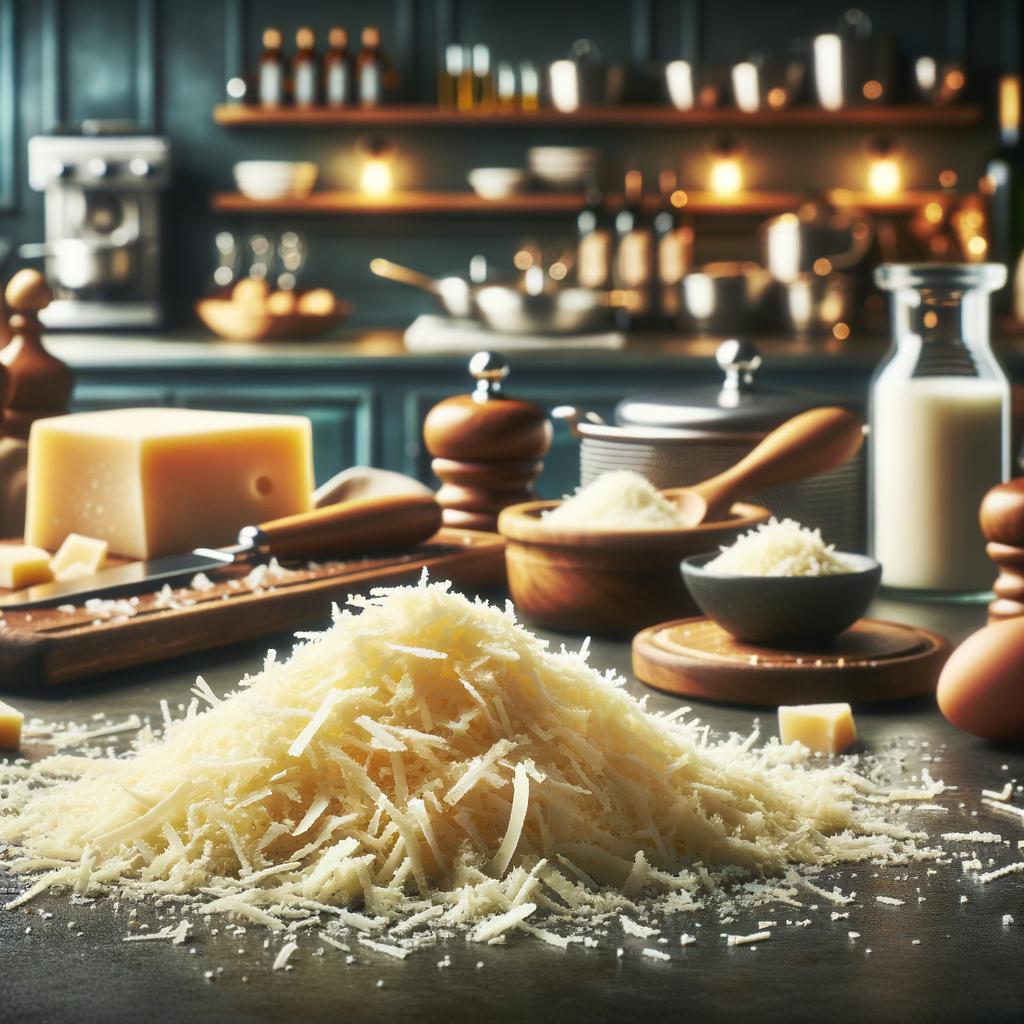Grated Parmesan Cheese

Description
Parmesan cheese, a luscious ingredient that graces our kitchens, is more than just a cheese. It's a symphony of flavors, a testament to time-honored tradition, and a versatile culinary marvel. Grated parmesan cheese, in particular, is a delightful sight - a snowfall of golden granules, each piece promising a burst of umami goodness. Its texture is dry and crumbly, yet it melts into a creamy richness in your mouth. The flavor profile is complex - nutty, salty, and slightly fruity, with a robust tang that sets it apart from other cheeses.
Primary Uses
Grated parmesan cheese is a culinary chameleon, effortlessly adapting to a myriad of dishes. It's the crowning glory on a plate of spaghetti Bolognese, the flavorful dusting on a Caesar salad, and the savory surprise in a risotto. But its use is not limited to Italian cuisine. It adds depth to soups, crunch to gratins, and richness to sauces across various culinary traditions. Beyond its culinary uses, parmesan cheese holds a revered place in Italian culture, often used in traditional celebrations and festivals.
History
Parmesan cheese traces its roots back to the Middle Ages, specifically to the provinces of Parma and Reggio Emilia in Italy. It was the monks who first started making this cheese as a way to preserve surplus milk. Over the centuries, the process of making parmesan cheese has remained largely unchanged, a testament to its timeless appeal. Legends say that it was the favorite cheese of the Borgia bride, Lucrezia, and it has even been mentioned in the works of the famous author, Boccaccio. Today, it enjoys global popularity and is cherished by cheese connoisseurs and casual food lovers alike.
Nutritional Information
Grated parmesan cheese is a powerhouse of nutrients. It's rich in protein, calcium, and phosphorus, making it a good choice for bone health. It also contains a good amount of vitamins A and B12. Despite its high nutritional value, it's lower in fat and cholesterol compared to other cheeses. However, its high sodium content means it should be consumed in moderation. Nevertheless, when used judiciously, parmesan cheese can be a flavorful and nutritious addition to your diet.

